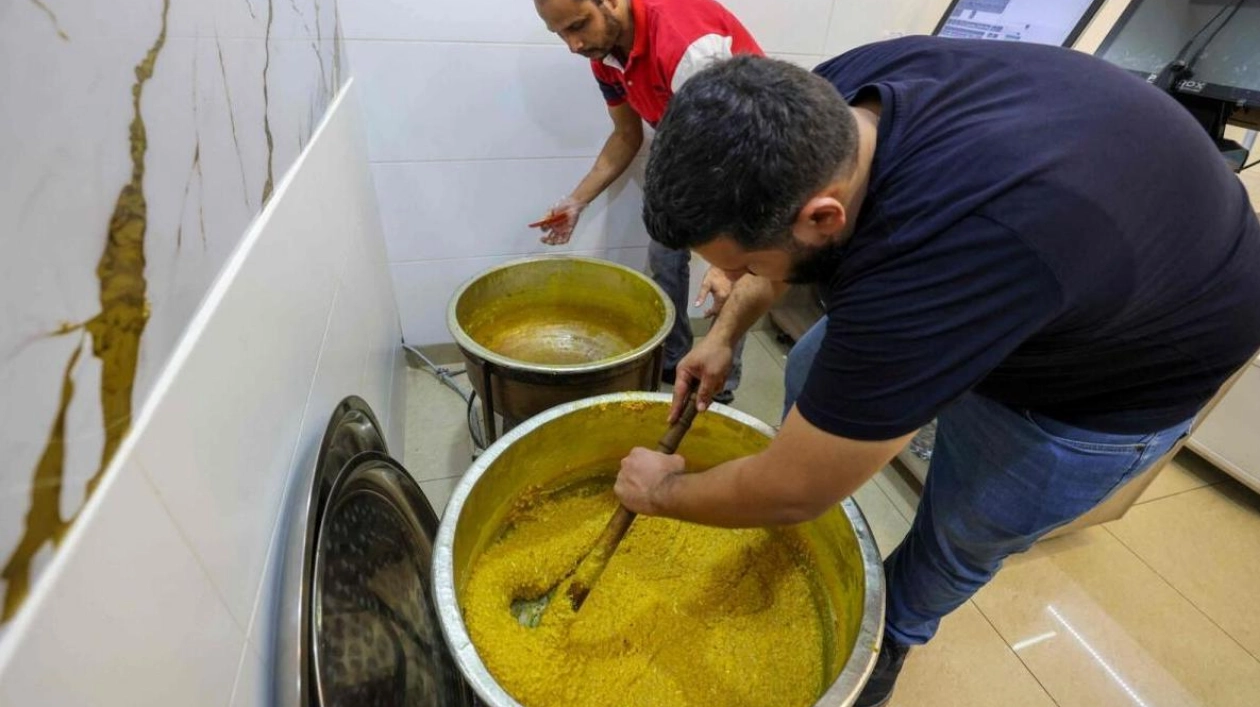In a bustling Beirut neighborhood, Hasan El Makary meticulously weighs warm, aromatic mufataka, a traditional sweet seldom seen in local stores. "I've been at this shop for 50 years, specializing in mufataka for the past 30," Makary remarks from his modest shop, adorned with aging decor and a low ceiling. Mufataka, a rice pudding infused with turmeric, tahini, sugar, and pine nuts, is a Beirut staple but remains obscure beyond the city. At 73, Makary once sold various sweets but shifted focus to mufataka due to growing demand, now crafting the yellow pudding with his cousin, his business partner. "Start with turmeric, then add tahini, sugar, and rice... we simmer it over a fire," he explains. The rice is soaked overnight, and Makary arrives at the shop at 5am to prepare the dish, which requires four hours and constant stirring. His father began making mufataka, despite initial doubts about its marketability, believing it was typically home-cooked. Plastic containers filled with the pudding, consumed with a spoon, are scattered across trays and tables, awaiting customers who glance in from the busy street. Customer Iman Chehab, 55, collects mufataka for her mother, who used to make it herself. "She's elderly now and can't stir... it's laborious," says Chehab, a human resources manager. The dish is a "traditional staple for us Beirut natives," she notes, adding that shops like Makary's represent "the cherished old Beirut we want to remember." Nearby, Samir Makari, 35, continues the family legacy. In his modern shop, also offering Arabic sweets like baklava, Makari tends to a large copper pot of mufataka, stirring it with a long, wooden-handled tool. He measures and blends sugar, tahini paste, and pine nuts in another pot before combining them. Traditionally made once a year on the last Wednesday of April, families would gather at Beirut's public beach for the occasion known as "Job's Wednesday," a nod to the biblical figure celebrated for his patience, a quality also needed for making mufataka, according to the younger Makari. Photographs of his father and grandfather at work hang on the shop's wall, which he runs with his brother. He occasionally makes mufataka twice a day, depending on demand, with some customers taking it beyond Beirut to introduce others to the dish. At the original store, the elder Makary expresses joy that his children have upheld the tradition. Mufataka is part of "my heritage," he states, and the family has "passed it down through generations."

Text: Lara Palmer
03.09.2024
A sweet journey through time with Hasan El Makary and his family's cherished mufataka recipe.





